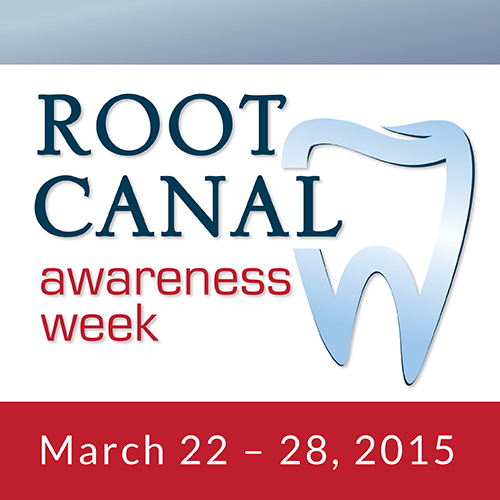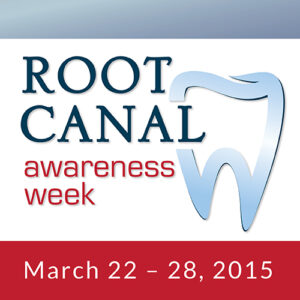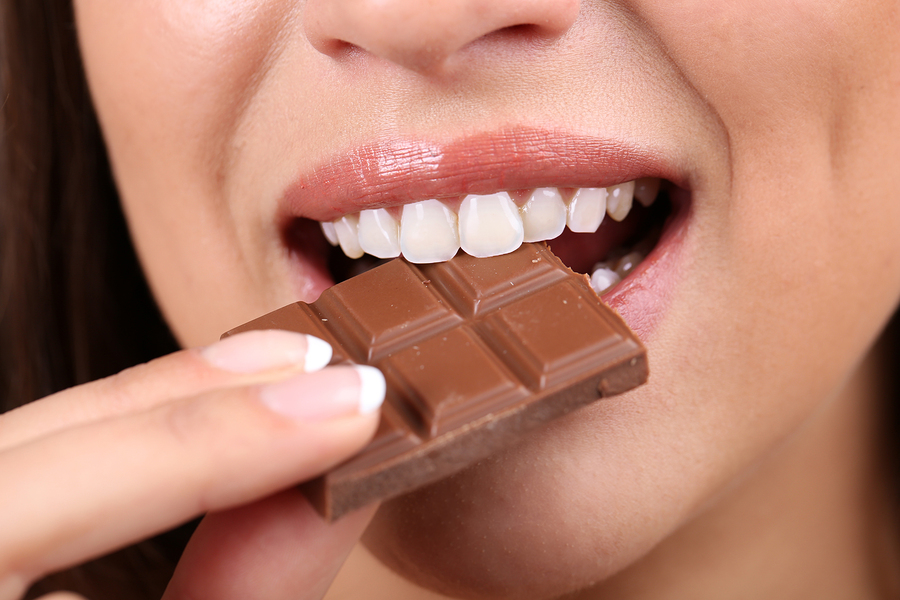
by Dr. Jacqueline S. Allen | Mar 23, 2015 | Blog, Endodontics, Phoenix Endodontic Group, Root Canal
 Root canal treatment has come a long way since its earliest days in the 17th century. Technology and treatment methods have advanced so much that root canals can be completed in mere hours with little discomfort. Dr. Allen of Phoenix Endodontic Group provides some information on this tooth-saving procedure. Just in time for Root Canal Awareness Week!
Root canal treatment has come a long way since its earliest days in the 17th century. Technology and treatment methods have advanced so much that root canals can be completed in mere hours with little discomfort. Dr. Allen of Phoenix Endodontic Group provides some information on this tooth-saving procedure. Just in time for Root Canal Awareness Week!
Unpleasant root canals are a thing of the past thanks to gifted Endodontists, new materials, better magnification and advanced tools and techniques. During treatment, your doctor will x-ray or scan the troublemaking tooth to determine a course of action. The infected pulp inside the tooth will be completely removed and the tooth cleaned thoroughly. To replace the compromised pulp, the tooth is refilled using a special material called gutta percha and sealed. The result is a shining tooth and a smiling patient!
Expert endodontists such as Dr. Allen are highly trained in the art of saving infected teeth and are well informed on the best methods of treatment. Dr. Allen is excited about the future of the field, especially as new technologies and techniques make their way into the spotlight. Pulpal regeneration (basically bringing a dead tooth back to life) is a new and exciting advancement in endodontics, Dr. Susan says. While many damaged teeth can be saved today with timely attention, this type of technology could boost that success ratio even higher.
For those patients who are nervous about dental or medical procedures, there are multiple solutions. These can range from something as simple as nitrous oxide during the procedure, to a pre-appointment anxiolysis medicine, all the way to light IV sedation depending on the level of anxiety, Dr. Allenadvises.
The best strategy for a successful root canal is to treat it promptly. Seeing your general dentist on schedule will help identify problems that are in early development, and visiting Dr. Allen will ensure that you receive the most skilled treatment possible.
For more information about Root Canal Awareness Week or other dental questions, talk to the friendly and knowledgeable staff at Phoenix Endodontic Group!

by Dr. Jacqueline S. Allen | Feb 23, 2015 | Blog, Endodontics
 In past decades, a common dental care complaint was the great discomfort of a root canal. Quite happily, those days are long gone thanks to Endodontists like Dr. Allen at Phoenix Endodontic Group. Putting off a root canal is something you should never do for a number of reasons.
In past decades, a common dental care complaint was the great discomfort of a root canal. Quite happily, those days are long gone thanks to Endodontists like Dr. Allen at Phoenix Endodontic Group. Putting off a root canal is something you should never do for a number of reasons.
When you need a root canal, it is generally because the inner pulp of your tooth has become infected or damage to your tooth’s nerve has somehow occurred. During the root canal process the tooth is thoroughly cleaned, repaired and sealed. This alleviates the pain and can save the tooth in the majority of cases.
The longer you wait before having the procedure, the more infected and deteriorated the tooth becomes. You could ultimately lose the tooth but could also suffer pain and infection creating a danger to your overall health, Dr. Allen warns. Infection that progresses and enters the blood stream can cause serious problems for your organs and make you very sick. Intense pain may impact your blood pressure and aggravate other medical conditions. These are completely avoidable situations if the tooth is treated promptly.
Having a root canal as soon as possible saves time and money by treating a simpler problem, helps avoid complications and gets rid of a patient’s pain quickly. With all of the benefits to having immediate treatment, then why do patients seem to procrastinate when it comes to a root canal? Dr. enAll states, Unfounded FEAR of the procedure is the number one cause. Most root canal treatments can be done with minimal to no pain. For those patients who STILL can’t seem to get past their intimidation, Dr. Allen reminds them “There are other options as well, to alleviate the fear.”
Considering the incredible advancements in technology and technique when it comes to root canals, there is no good reason to prolong your dental agony. Dr. Allen and the staff at Phoenix Endodontic Group will help you efficiently and expertly, to have you smiling comfortably in no time. Call today to schedule your treatment!

by Dr. Jacqueline S. Allen | Feb 16, 2015 | Blog, Endodontics, Endodontist, General Information
 A day in the life of your Phoenix Endodontic Group brings many different types of cases into the office. One common visitor who comes in for Dr. Allen’s expertise is the candy connoisseur. You may know what too many sweets can do to your waistline, but do you know what effect it may have on your teeth?
A day in the life of your Phoenix Endodontic Group brings many different types of cases into the office. One common visitor who comes in for Dr. Allen’s expertise is the candy connoisseur. You may know what too many sweets can do to your waistline, but do you know what effect it may have on your teeth?
Sugar is a highly toxic substance to your tooth enamel and is present in many types of food and drinks. Soda, fruit juices, cookies and candy are all prime culprits that cause tooth decay, especially if allowed to linger in your mouth. Ingestion of sugar promotes the plaque that eats away at your teeth. A particularly bad type of sweet is sticky candy. Soft sticky candies often get caught between the teeth and if you aren’t a good flosser, can cause cavities in that area, says Dr. Allen.
Another dental problem could be caused by eating hard candy. Extremely hard candies that are “chewed” can also cause damage (cracks) to the tooth, explains Dr. Allen. This type of damage allows bacteria to invade the tooth and infect the inner pulp and root system. Eventually a problem of this nature may require your endodontist to perform a root canal. If you are going to consume hard candies, avoid biting or chewing them, especially with your more vulnerable front teeth.
As well-intentioned as patients are in their desires to follow a healthy diet and practice good dental habits, no one is perfect in either arena. If you are going to enjoy a sugary snack, then always attempt to brush afterward. If that is not possible, then rinsing your mouth out with water can help, but minimally, states Dr. Allen. Be as diligent as possible in flossing after sticky treats.
Sugar is acceptable in moderation, especially if you practice good dental habits when you eat sweets. However, it is far more common that it will cause problems with your teeth. If you are a lover of these kinds of treats, talk to Dr. Allen, your Phoenix endodontist, for advice on how to prevent dental damage.

by Dr. Jacqueline S. Allen | Dec 22, 2014 | Blog, Dentistry, Endodontics
 In the field of Endodontics, retreating root canals and other failed dental work can be a routine part of daily practice. There are a few frequently observed conditions that often require repeat work. Dr. Susan Wood of Phoenix Endodontic Group mentions some of these situations.
In the field of Endodontics, retreating root canals and other failed dental work can be a routine part of daily practice. There are a few frequently observed conditions that often require repeat work. Dr. Susan Wood of Phoenix Endodontic Group mentions some of these situations.
For some patients in Endodontics, they’ve undergone a root canal and failed to follow through with the entire treatment process. After your treatment has been completed at your Endodontist’s office, it is important to follow up with your general dentist for a permanent restoration or crown to prevent leakage. RCT that is done properly the first time by an Endodontist has over 95% success rate, providing that the tooth has been restored adequately in a timely manner, says Dr. Wood.
Another type of treatments that may eventually degrade are the seals on teeth that have been filled or received root canal therapy. Endodontics patients must be dedicated to their twice-yearly dental checkup for best results with seals. Dr. Wood describes the problem: Just like your automobile’s tires that wear after excessive use, seals on fillings can break down after months of chewing. It is important to see your general dentist regularly, to catch the breakdown in marginal sealing prior to them allowing leakage into the root canal space.
Last but not least in the list of retreatment cases are root canals that have failed due to ineffective treatment. This could be caused by failure to remove all of the infected tissue within the tooth, a compromised canal that was missed, or a filling that was not sealed properly. Should the tooth become problematic again, an Endodontics professional may repeat the root canal or extract the tooth.
For best results regarding your dental health and endodontics needs, see your dentist twice a year to identify problems early on. When a more complex issue arises, call Phoenix Endodontics Group for the best possible outcome!

by Dr. Jacqueline S. Allen | Dec 15, 2014 | Blog, Endodontics, Root Canal
 Patients of many ages and types come to Phoenix Endodontic Group with tooth trouble and may need a root canal. In the interest of prevention, you may wish to know a little more about common demographics and triggers that lead to the need for this treatment.
Patients of many ages and types come to Phoenix Endodontic Group with tooth trouble and may need a root canal. In the interest of prevention, you may wish to know a little more about common demographics and triggers that lead to the need for this treatment.
Dr. Jacqueline S. Allen offers the following about age groups and root canals: A root canal can happen at any age. It is primarily dictated by decay and the amount of dental work on one tooth. Whether young or old, if tooth decay gets close to the pulp complex, irreversible pulpitis can occur. Softer diets including more refined carbs/sugars can increase caries. This is seen in all age groups.
The most common patient demographic for a root canal is over forty, usually due to large amount of dental work done to one tooth, Dr. Allen says. She gives the example of vehicle tires that eventually require replacement after accumulating many miles. Crowns and fillings wear with chewing, personal habits or go bad due to recurrent decay. The more work, the more irritation to the pulp complex. The more irritation and the older we are, the more likely inflammation of the pulp complex is irreversible, states Dr. Allen.
In addition to diet and age, Dr. Allen says Genetics can play a role if there is no enamel development of teeth, or immune system problems. Dry mouth (Sjogrens) can create an increase of dental caries, and increase the likelihood of needing root canal therapy.
How can you prevent needing a root canal? Your best chance is by taking proper care of your teeth. Eat a sensible diet that is low in sugar. Avoid chewing on hard objects that can crack teeth and allow infection to invade. Brush, floss, and see your dentist regularly. Your twice-yearly dental visit can identify problems early on, potentially giving you more treatment options.
You may not avoid the need for a root canal, but Dr. Allen at Phoenix Endodontic Group will take expert care of you should that need arise!

by Dr. Jacqueline S. Allen | Dec 8, 2014 | Blog, Endodontics
 The holidays may not be the most wonderful time of the year if you’ve cracked a tooth! Phoenix Endodontic Group sees a spike in cracked teeth during the holiday season due to a few common food culprits. Dr. Susan Wood has some advice to offer before you bite off more than you can safely chew at this year’s festivities.
The holidays may not be the most wonderful time of the year if you’ve cracked a tooth! Phoenix Endodontic Group sees a spike in cracked teeth during the holiday season due to a few common food culprits. Dr. Susan Wood has some advice to offer before you bite off more than you can safely chew at this year’s festivities.
One of the most common causes of fractured teeth is chewing on hard objects or foods. You may see (and hear) people chomping away at the ice in their drink during holiday parties and you’ll be witnessing tooth damage in action. Chewing ice may relieve stress or boredom, but it is unnecessarily stressful for teeth and often results in a visit to the dentist or Endodontist.
Hard candy would be another reason for dental mishaps around the holidays, says Dr. Wood. The proliferation of sweet treats offered up in bowls on every table may be greatly appealing, but if you have issues with enamel strength or a history of weak or cracked teeth, you may wish to avoid these temptations in favor of vegetables or low-fat cheeses. Harder nuts such as almonds (especially Jordan almonds surrounded by a very hard candy shell) are another food that will do a number on vulnerable teeth.
The greatest dangers in food may not be those you consciously eat! When asked about the most unusual thing she’s heard of to cause a patient’s cracked tooth, Dr. Wood declared it to be “A pebble in a salad!”
The holidays present other dangers resulting in cracked teeth. Dr. Wood says, Many tooth fractures are due to stress-related grinding (or bruxing) of the teeth and around the holidays, that can sometimes be more apparent. If you know you are a grinder, in times of high stress it may be beneficial to wear a special mouth guard to prevent damage. Your dentist or Endodontist can usually tell if you grind in your sleep and can help you acquire a guard.
The holiday season can be a menace to your teeth. Be aware of hazardous foods and call Phoenix Endodontic Group for any dental emergencies.

 Root canal treatment has come a long way since its earliest days in the 17th century. Technology and treatment methods have advanced so much that root canals can be completed in mere hours with little discomfort. Dr. Allen of Phoenix Endodontic Group provides some information on this tooth-saving procedure. Just in time for Root Canal Awareness Week!
Root canal treatment has come a long way since its earliest days in the 17th century. Technology and treatment methods have advanced so much that root canals can be completed in mere hours with little discomfort. Dr. Allen of Phoenix Endodontic Group provides some information on this tooth-saving procedure. Just in time for Root Canal Awareness Week!









